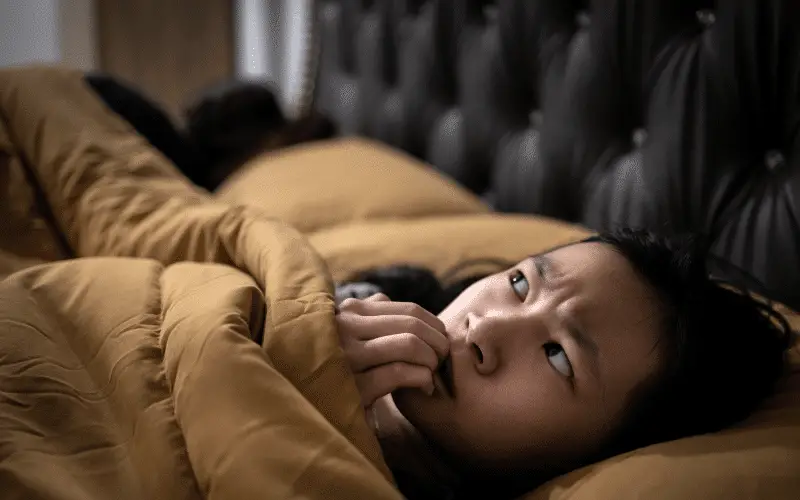Symptom 3. Sleep Paralysis and Hallucinations

Sleep paralysis and hallucinations are less common but potentially distressing symptoms of hypersomnia that can significantly impact an individual’s mental health and overall well-being. People with hypersomnia often experience disruptions in their sleep-wake cycle, which can result in episodes of sleep paralysis and vivid, sometimes frightening, hallucinations. These experiences can cause fear, anxiety, and emotional distress, affecting the quality of sleep and daily functioning.
Sleep paralysis is characterized by a temporary inability to move or speak while falling asleep or waking up. It occurs when the body’s normal sleep processes are disrupted, causing the individual to remain in a state of muscle atonia (muscle relaxation) despite being mentally awake. During sleep paralysis episodes, individuals may also experience hallucinations, such as the perception of a threatening presence or the sensation of floating. These hallucinations can be highly unsettling and may contribute to feelings of anxiety or fear related to sleep.
To manage sleep paralysis and hallucinations related to hypersomnia, individuals should first implement lifestyle changes that can promote better sleep quality and reduce daytime sleepiness. Establishing a consistent sleep schedule, practicing good sleep hygiene, and creating a relaxing bedtime routine can all help improve sleep quality and decrease the likelihood of experiencing sleep paralysis or hallucinations. Additionally, understanding the nature of these experiences and recognizing them as symptoms of a sleep disorder can help reduce the fear and anxiety associated with them.
In some cases, consulting a sleep specialist may be necessary to identify the root cause of hypersomnia and develop a personalized treatment plan. By addressing the underlying cause of hypersomnia, individuals can better manage their sleep paralysis and hallucinations, improving their overall mental health and quality of life.
Sleep paralysis and hallucinations are significant and disruptive symptoms of hypersomnia that can greatly impact an individual’s daily functioning, well-being, and quality of life. By implementing lifestyle changes, seeking professional help, and addressing the underlying cause of the sleep disorder, individuals can regain control over their sleep and wake cycle, improving their ability to manage these distressing experiences. With the right support and interventions, those affected by this symptom can experience a renewed sense of mental health and well-being in their personal, professional, and social lives. (3)